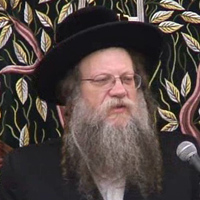30
If the married guest wishes to light candles himself, according to Ashkenazic custom he may do so with the berakhot, but he should try to light before his wife lights at home. According to Sephardic custom, he should not light. 18
If he is staying in a hotel or in an empty apartment, even if his wife is lighting candles at home, he should light where he is. According to Ashkenazic custom, he should recite the berakhot; according to Sephardic custom, if he is in Israel he should not recite the berakhot, while if he is abroad he should recite them. 19
A married soldier on reserve duty does not need to light candles, as his wife is lighting on behalf of both of them at home. He should hear the berakhot from a different soldier who is lighting. If no one on the base is lighting, he should light in the mess hall with the berakhot. Even if he follows Sephardic custom, in this case it is a mitzva to light candles for the rest of the unmarried soldiers. If everyone at the base is observant, married, and has someone lighting at home on his behalf, the above does not apply. Nevertheless, in such a case, if there are ten people present, they should light candles at the base’s synagogue with the berakhot.
The law that a married man fulfills his obligation through his wife’s lighting applies as long as she remains at home. However, if she is a guest elsewhere (for example, in her parents’ home), her husband is once again obligated to light. In such a case, according to all customs he must light where he is with the berakhot.
Similarly, if a woman is away and her husband is lighting at home, she fulfills her obligation through his lighting. She should try to be present when her hosts light candles at their home. If she is alone in a hotel, she should light candles herself. According to Ashkenazic custom, she should recite the berakhot; according to Sephardic custom, she should not.








